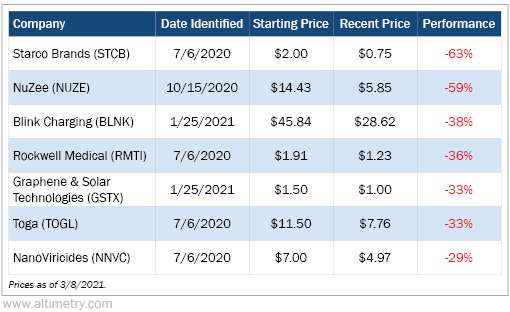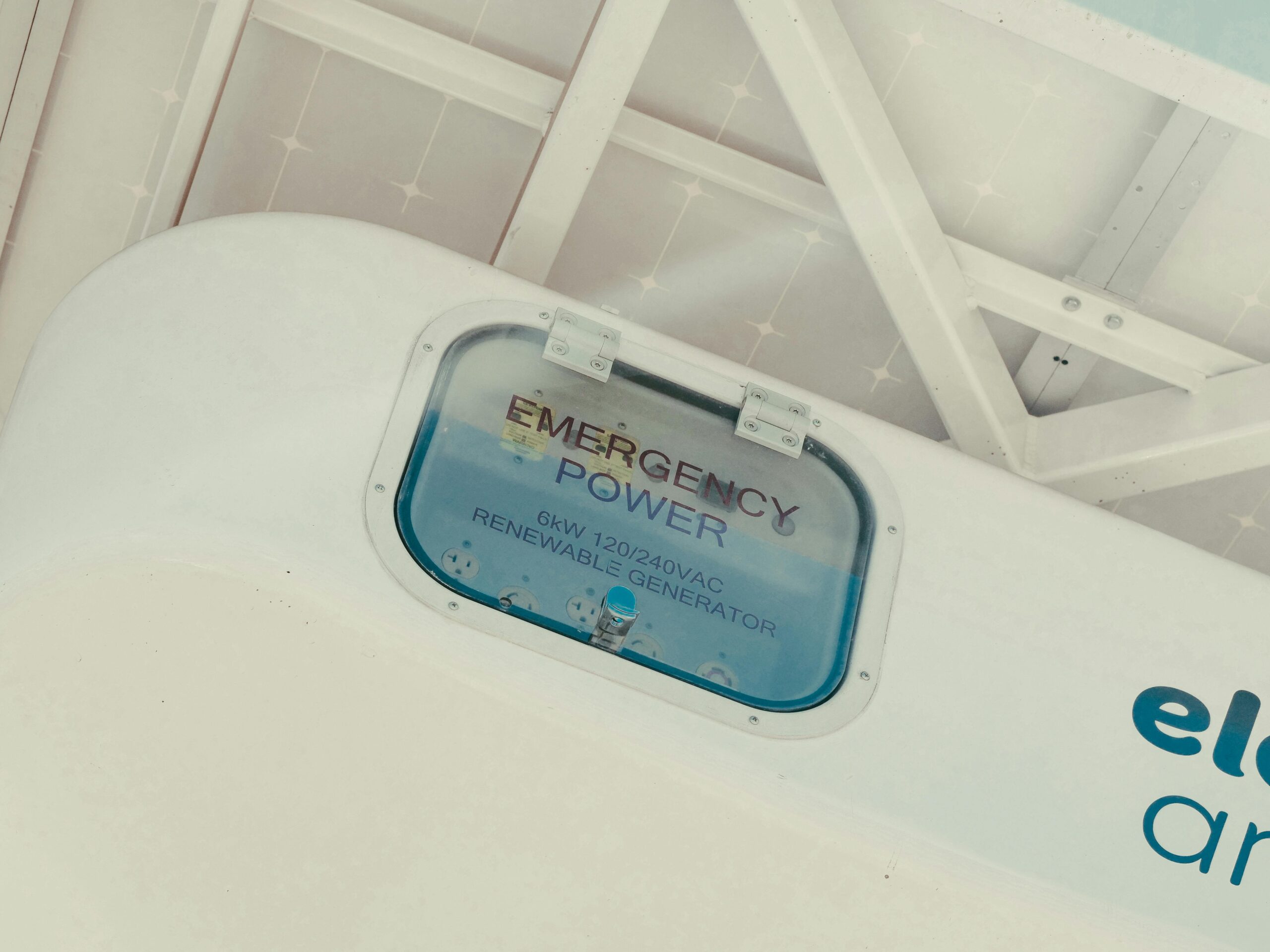 It didn't take long for the political fallout to start hitting...
It didn't take long for the political fallout to start hitting...
One of the more surprising takeaways from the GameStop (GME) chaos – which we discussed in the February 2 Altimetry Daily Authority – had to do with the actions carried out by the U.S. Securities and Exchange Commission ("SEC"), or lack thereof.
The agency played a hands-off role as GME shares spiked and fell and jumped again. Despite knowing that the people most likely to get hurt are the everyday "retail investors" who've been chasing the name, the SEC has continued to let the story play out.
These folks were the main buyers when GME shares rocketed above $200 and then $300 and even $400 back in January and early February.
They were hoping to make it rich... but some who bought in the midst of the mania wound up taking the biggest losses. Even with the stock rallying again recently, many of those buyers are still likely underwater.
As we explained last month, the wild trading in GME shares was related to people who (perhaps irrationally) believed in the actual fundamentals of the business... and were betting with their wallets. The chaos didn't look like a "pump and dump" issue, so the SEC's lack of action made some sense.
Since then, however, the SEC has come down on 15 other securities that armies of retail investors on Reddit's WallStreetBets forum have been hyping – including microcaps like Blue Sphere (BLSP), Green Energy Enterprises (GYOG), and Helix Wind (HLXW). These stocks all rallied hard after activity in the WallStreetBets community... and in the SEC's eyes, they look like classic pump-and-dump campaigns.
These companies appear to be in sexy industries, but had stale filings and no clear business potential despite all the promotion on the message board. It's a classic sign of artificial hype by someone trying to make a quick buck.
 We're happy to see the SEC getting involved...
We're happy to see the SEC getting involved...
The intervention is absolutely appropriate... even if it's a little late for many investors.
As we mentioned, these suspended names are microcap companies with stories that can lead investors to believe they can be the next big thing. They claim to be positioned in booming industries with big macro trends behind them... even as some of these companies have no employees and don't produce an ounce of revenue.
Questionable players hype these firms up, hoping to make a quick profit by unloading shares on unsuspecting victims. Investors who don't pay close enough attention can easily end up with worthless pieces of paper – a classic pump-and-dump pattern.
Unfortunately, the SEC getting involved is more the exception than the rule in the land of penny stocks and microcaps.
The SEC has generally been more hands-off in the microcap space. This is why we at Altimetry put our analysis to work to find stocks in the space that might look like rocket ships, but are actually ticking time bombs.
They're companies with questionable operating histories that falsely promise massive gains... and they're the type of stocks that can torpedo an investor's entire portfolio.
As part of our Microcap Confidential service, we issue a quarterly "Do Not Buy" list of these microcap names to avoid. Since we first started publishing the list in July, seven of the 18 stocks are down more than 25%.
These include names like NanoViricides (NNVC), which promised coronavirus cures and is down 29% since early July.... and Blink Charging (BLNK), which talked about its massive (but unusable) car charger network before dropping 38% since January. Take a look...
 We find these names the way the SEC should be finding them...
We find these names the way the SEC should be finding them...
We start by examining companies' ethics through our deep fundamental forensic analysis.
This means looking at which companies have questionable histories with auditing firms that were eventually found to be frauds.
We also analyze management to ensure that company executives don't have any questionable backgrounds. Possible "red flags" might consist of management teams with prior pump-and-dump experience or a lack of expertise in the area they're promoting.
It's also critical to determine where the company's operations are being carried out. For example, if a business claims it has hundreds of millions of dollars tied up in African mining assets but has three employees based out of a tiny business park in Florida, that's a significant red flag.
 And we don't just do this type of work to find companies to avoid...
And we don't just do this type of work to find companies to avoid...
In Microcap Confidential, we're looking to identify microcaps with big upside. We use this analysis to ensure the microcap opportunities we recommend aren't susceptible to pump-and-dump events.
In the "Wild West" of microcaps, it's important to identify red flags before getting caught up in the massive upside these names can appear to have. As we said, the SEC is largely absent from the space... so in Microcap Confidential, we police the accounting ourselves.
This type of forensic analysis has led us to identify five microcaps that went on to double after our initial recommendations... and we just published our latest idea on Monday. It's a tiny tech company poised to execute on an improved playbook that previously led it to a run of massive profits and revenue growth.
To learn how to gain access to this brand-new recommendation – as well as our list of microcaps to avoid – click here.
Regards,
Joel Litman
March 10, 2021



 It didn't take long for the political fallout to start hitting...
It didn't take long for the political fallout to start hitting...


